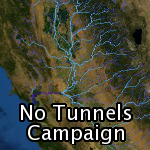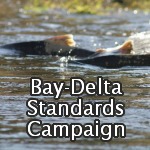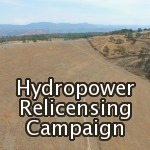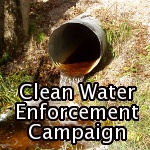CSPA submitted Comments on December 14, 2022 on the Draft Environmental Impact Report (DEIR) for a proposed new tunnel to divert massive amounts of water under the Sacramento – San Joaquin Delta. The proposed tunnel is the latest scheme by the California Department of Water Resources (DWR) to more reliably ship more northern California water south.
CSPA’s comments show that the DEIR violates the Delta Reform Act and the California Environmental Quality Act (CEQA). The DEIR must be revised and recirculated.
DWR has branded its project as the upbeat-sounding “Delta Conveyance Project.” This new branding of reduced flow into the water-starved Delta is only slightly less annoying than DWR’s previous branding, the “California WaterFix.” The addiction to excessive water exports from the Sacramento Valley to the San Joaquin Valley and southern California still requires court-ordered rehab.
The DEIR violates the Delta Reform Act.
The Delta Reform Act of 2009 requires making “protecting, restoring, and enhancing the Delta ecosystem” a “co-equal goal” with water supply reliability. The Delta Reform Act also requires that any new system to convey water past the Delta “include appropriate Delta flow criteria.” There is not a glimmer of any of this in the thousands of pages of the DEIR.
Instead, the DEIR opts for the traditional CEQA dodge that if the proposed project doesn’t make an already terrible situation worse, there is no impact. The DEIR views the Delta ecosystem as a constraint on water supply, not as “co-equal.” The DEIR doesn’t say a thing about flows needed to restore the Delta. Instead, the DEIR evaluates whether the Delta tunnel would be able comply with grossly inadequate flow standards that have created the Delta’s existing ecological crisis.
The DEIR violates CEQA.
CEQA requires that an analysis look at the whole of a proposed project. The DEIR doesn’t come close on this score, either. As in the 2015-2018 “WaterFix” proposal, DWR still has not decided if the Bureau of Reclamation and the Central Valley Project (CVP) are in or out. It’s the same story this time around: DWR wants the opportunity for the CVP to sign on, but doesn’t analyze the impacts if it does.
The DEIR does not describe reservoir operations of DWR’s State Water Project (SWP) and Reclamation’s CVP as they exist today. Instead, the DEIR says there are no plans to change reservoir operations. The DEIR throws existing operations into a model, turns the crank, and reports the results. The DEIR then says ‘see, not much changed.’ It is a big exercise in making the reader forget: that there is no legal requirement behind how the DEIR’s modelers told their model to model reservoir operations. There is no existing requirement to make DWR do in practice what its modelers did in the model.
Models don’t operate the SWP and the CVP. People do. Operators make decisions based on policy, risk tolerance, and continuous evaluation of conditions. The DEIR doesn’t describe the decisionmaking processes of project operators, and particularly how those processes are reasonably foreseeable to change if a tunnel to export water under the Delta is built. That’s misleading and against the law. It’s also an open door for DWR’s managers and contractors, and their armies of lawyers and consultants, to game the rules to squeeze more water through the new tunnel.
The DEIR dismisses impacts to Delta water quality.
The DEIR admits that salinity in the Delta will be “substantially” and “measurably” higher in some months of below normal and dry water years. But the DEIR claims no impact, because the salinity increases wouldn’t take salinity above the existing inadequate standards. Except, that is, when the State Water Board allowed “temporary urgency changes” after one dry year, at which point even the existing weak standards wouldn’t count.
It will take an enormous coalition effort to beat this Delta-killing project.
During DWR’s last run at tunneling under the Delta, CSPA took on the whole DEIR from soup to nuts. This time, CSPA has focused on what it does uniquely or particularly well, and signed on to other excellent comments from the National Resources Defense Council, Sierra Club California, and AquAlliance.
CSPA expects DWR to certify its EIR later this year, and that litigation will follow.
CSPA expects that by 2024, a broad coalition of environmental and fishing groups, Delta counties, environmental justice organizations, and others will be working at the State Water Board to oppose the water rights changes that would be needed before the Delta tunnel project could start construction.
Additional note: DWR’s email address did not accept the April 2020 scoping comments of CSPA et al. on the Delta tunnel project, even though CSPA submitted those comments on time. As a result, DWR did not respond to CSPA et al.’s scoping comments. CSPA also re-submitted CSPA et al.’s scoping comments as supplemental comments on the DEIR.









